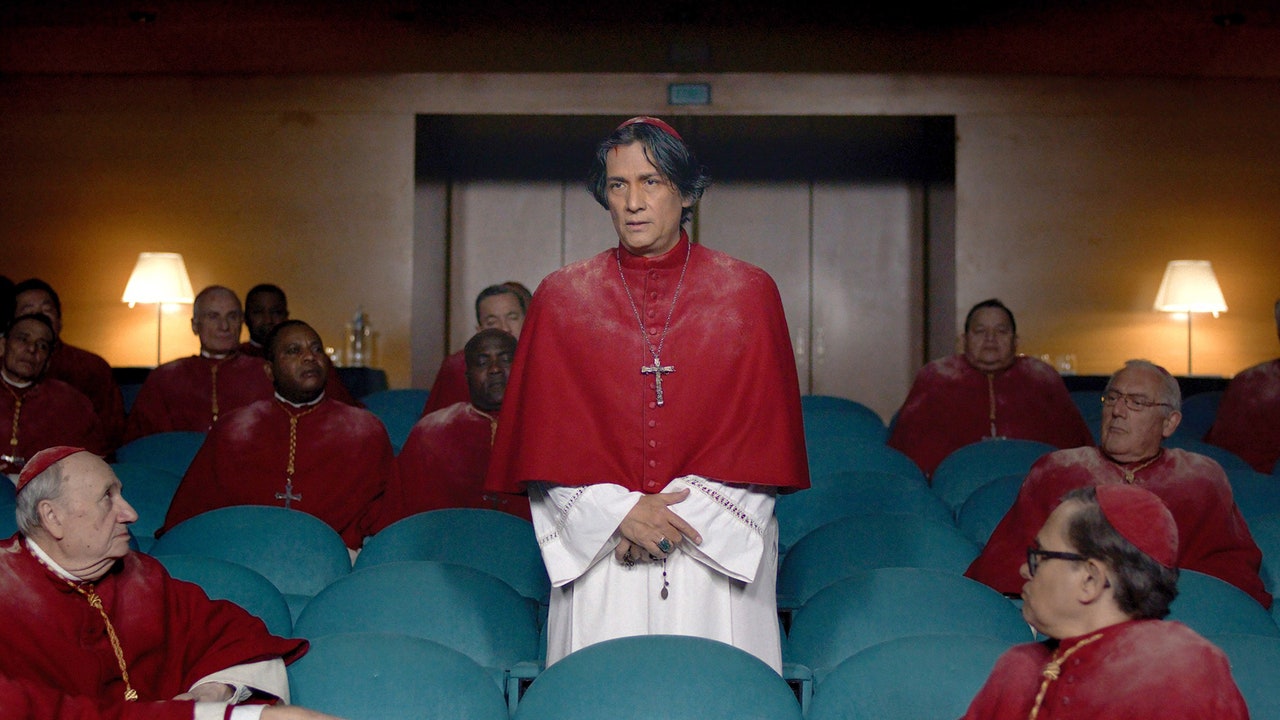The following article contains major spoilers for Conclave.
I went into Conclave expecting a moody, quasi-political thriller. This was a belief built on a single viewing of the trailer and a shallow knowledge of the skeletal facts of the filmâpope dies, have to elect new pope, pope election hit by some kind of scandal. I was thinking All the Presidentâs Men, Tinker Tailor Soldier Spy, etc. Verbal statecraft. Men taking off their glasses to make serious arguments. And though at the surface level the film does indeed provide these things, what we end up with, tonally speaking, is something that feels a little less Lincoln, a little more The Death of Stalin.
Itâs hard to be sure exactly how intentional this register is, but one suspects not entirely. While thereâs a certain knowing campness to the whole endeavorâthe visual opportunity of the Catholic church is capably exploited, vaping cardinals and allâthe film still insists on repeatedly driving home its serious political message throughout. It does this very loudly. John Lithgow’s wannabe-popeâs transgressions hang over the proceedings like Chekhovâs blunderbuss, Ralph Fiennes’s âwho, me?â moment rears its gigantic head from a mile off, and newcomer Benitez’s ultimate ascent to popedom, complete with Chat GPT âprogressive response to terrorist attack pleaseâ speech, is similarly (un)subtle.
What I didn’t see coming was the film’s final assertion of its advocacy for tolerance. The revelation that Benitez is intersex, shortly after his election in a room still wafted by the breeze coming in through a window blasted glassless by the previous day’s bombing, felt initially like the heaving cherry that might just collapse the big batshit pope cake. And it is absurdâto throw something like that in the mix right at the end of the film with basically no foregrounding, as if the whole project’s goal was maximal gasps-per-minute, is kind of a wild move.
The film justifies it with another Benitez speech, which posits the new pope’s unique biology as the ultimate iteration of the quality that Fiennes’s Lawrence had earlier suggested that a best-possible pope would have: uncertainty. Contrasted against strongman baddie Tedescoâs hard-headed assertions, Benitez represents this uncertainty and openness in not just his ideals, but his identity.
I let go of what I thought this film was going to be around two Vatican-rattling scandals inâso, within maybe a third of the runtime. I started laughing when another terrible thing someone had hidden about themselves or someone else came to the fore. I heard and admired others in the theater doing the same. I had a good time getting wrapped up in the compulsion of the repeat-election structure, and I enjoyed the literal and narrative bombs for what they were: big, silly exciting devices designed to keep things lurching along.
The final revelation is another one of these. Itâs not that it couldnât or shouldnât happen, or that the very fact of an intersex pope is inherently ridiculous. Of course it isnât. But the mic-drop deployment of the fact of Benitezâs intersexuality is a final, fantastical jolt to the already-quite-heavily-defibrillated heart of the filmâs plot. And thatâs fine. It’s silly. Itâs fun! And it’s allowed to be those things. Whether it means to be or not.
This story originally appeared in British GQ.

